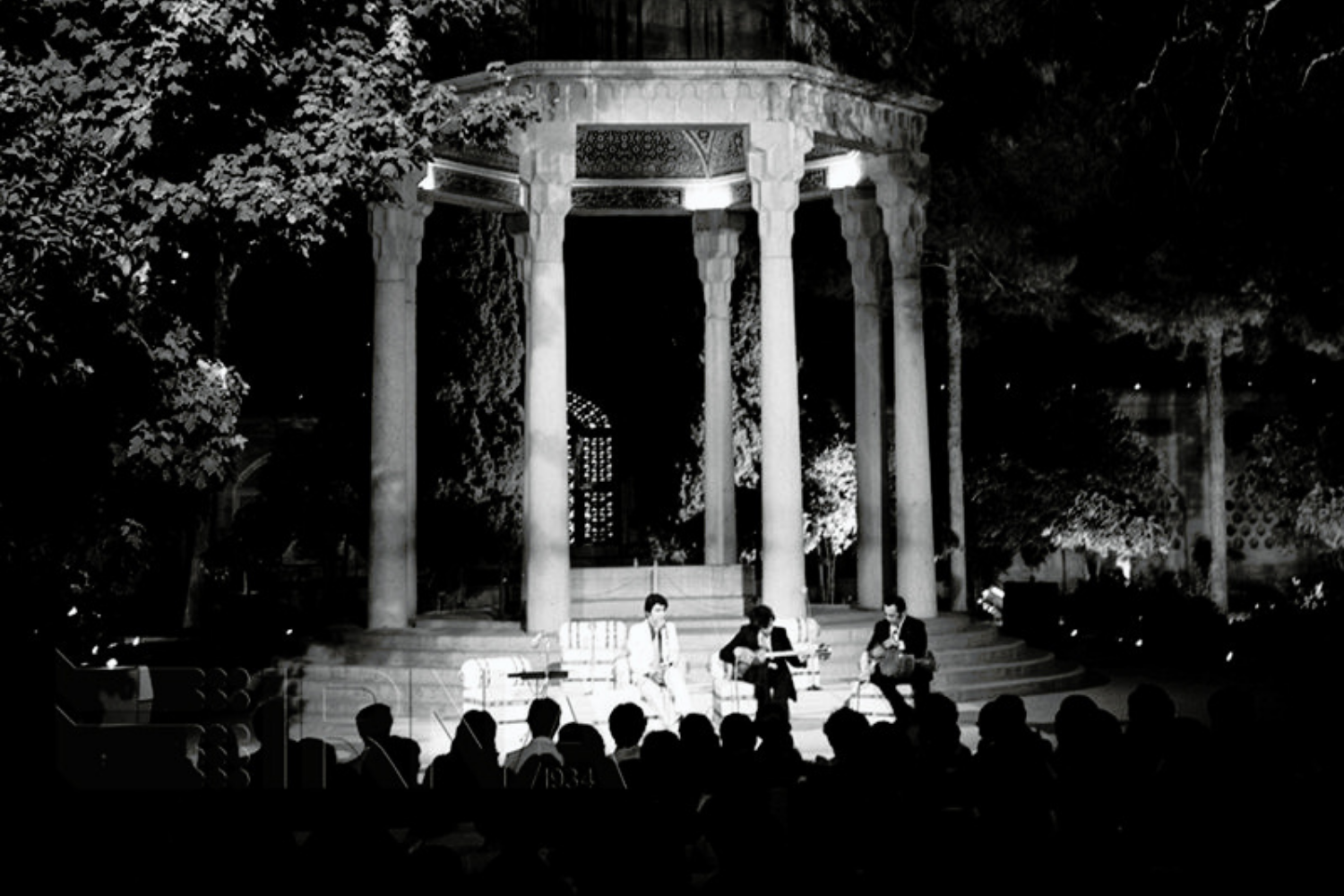

While the performance events of the Shiraz Festival were limited to a single decade (1967-1977), their cultural impact in Iran was both wide ranging and long lasting. And with the festival presenting artists from both the East and West and traditional along with experimental, among the most profound impacts was a “cultural synthesis” that emerged as a result of exchange of ideas and individuals. Musicologist Armaghan Fakhraeirad will discuss how the Shiraz Festival rekindled domestic interest in Iranian folk music and led to a series of folk music festivals in Iran that continue to this day. Musicologist Robert Gluck will consider how the Shiraz Festival advanced an early experimental electronic music scene in Iran. And musicologist Joshua Charney will explore the ways in which the festival can be viewed in the context of the rising tide of the 1979 Islamic Revolution.
This event is part of Beyond Borders: The Shiraz Festival
PROGRAM
2:00pm: Talk: “Shiraz Festival and Its Legacies Through the lens of the Revivalist Trends in Iranian Folk Music” with Armaghan Fakhraeirad
3:00pm: Talk: “East and West, West and East: Alireza Mashayekhi, the Shiraz Festival, and the Origins of Electronic Music in Iran” with Bob Gluck
4:00pm: Talk: “The Shiraz Festival and Its Place in the Revolutionary Narrative” with Joshua Charney
*All times are Eastern Standard Time (EST), UTC -5*
Admission to this online event is Free / Pay What You Wish. REGISTRATION IS REQUIRED. (Use ticket link). A link will be sent to you the day of the event.
PROGRAM DETAILS
Armaghan Fakhraeirad: “Shiraz Festival and Its Legacies Through the lens of the Revivalist Trends in Iranian Folk Music”
Abstract: Forthcoming.
Biography: Armaghan Fakhraeirad is a PhD Candidate in Music Studies at the University of Pennsylvania. She received her master’s from the Tehran University of Art, where she wrote about the history of Iranian folk music preservation and revival. This study predominantly deals with subjects such as nationalism, nativist movements, and cultural policies during the 1960s and 1970s and its legacies after the Islamic Revolution (1979). Fakhraeirad’s current research focuses on the music of the Iranian side of the Persian Gulf seashores which deals with the history of the rise and fall of the port cities in this region and the way they have exerted influence on the music and musical culture.
Bob Gluck: “East and West, West and East: Alireza Mashayekhi, the Shiraz Festival, and the Origins of Electronic Music in Iran”
Abstract: The founding figure of electronic music in Iran is Alireza Mashayekhi, whose first electronic works date to the 1960s. Having studied classical Persian and Western music in Iran, Germany, Austria, and The Netherlands, Mashayekhi trained numerous musicians who built compositional and academic careers throughout the world. The highest profile events that introduced electronic music to a broader, albeit elite Iranian public, took place at an annual festival under the Shah, without the participation of Mashayekhi. The Shiraz Festival, championed by Empress Farah Diba and sponsored by National Iranian Radio and Television (NITV) during the 1960s-70s, featured both Western and traditional Persian art. Among the Western electronic musicians who participated at Shiraz festivals were Iannis Xenakis, Karlheinz Stockhausen, and, with the Merce Cunningham Dance Company, John Cage, Gordon Mumma and David Tudor. The most dramatic and controversial performance was a site-specific work by Xenakis amid the ancient ruins of Persepolis. The fall of the Shah ended Western-focused public events, yet the creative work of Mashayekhi and his students continued in Iran and internationally, mindful of the culturally hybrid nature of artistic identity.
Biography: Robert J. Gluck is Professor of Music and Director of the University at Albany Electronic Music Studio. He also teaches in the Africana Studies Department and Judaic Studies Program. Gluck is a pianist, writer, and composer. Bob Gluck has written numerous articles documenting the international history of electronic music. He is author of “You’ll Know When You Get There: Herbie Hancock and the Mwandishi Band” (2012) and “The Miles Davis ‘Lost’ Quintet and Other Revolutionary Ensembles” (2016), both published by University of Chicago Press. His essays have been published in Leonardo Music Journal, Jazz Perspectives, Organized Sound, Journal SEAMUS, Leonardo, Living Music Journal, The Reconstructionist, Tav+, the EMF Institute, and in various conference proceedings. Gluck’s musical training is from the Juilliard, Manhattan, and Crane Schools of Music, as well as the State University of New York at Albany (B.A., 1977) and Rensselaer Polytechnic Institute (M.F.A., 2001). His primary teacher of piano was Regina Rubinoff (first in the Juilliard Preparatory Division). He is also a rabbi (a 1989 graduate of the Reconstructionist Rabbinical College), and he holds a Master’s in Hebrew Letters from the RRC (1989) and a Master’s in Social Work from Yeshiva University’s Wurzweiler School of Social Work (1984). He has held various senior leadership positions in the Jewish Reconstructionist movement.
Joshua Charney: “The Shiraz Festival and Its Place in the Historical Narrative”
Abstract: Because of certain controversies surrounding the Shiraz Arts Festival, critics and historians often place it in the context of the 1979 Iranian Revolution. This presentation examines conflicting and subversive ideas behind the festival’s programming of traditional Iranian and contemporary Western performance, while also clarifying certain misconceptions of the festival within the revolutionary narrative.
Biography: Joshua Charney is a performer, composer, and musicologist based in California. He received his Ph.D. in music from UC San Diego where he completed his dissertation entitled The Shiraz Arts Festival: Cultural Democracy, National Identity, and Revolution in Iranian Performance, 1967-1977. He is an active researcher who has lectured and presented papers on contemporary jazz in Iran, musical improvisation in postwar America, and the corporate soundscapes of Southern California. Charney is also the cofounder and editor of First : Listen – The Journal of Critical Listening Through Music, an open-access web journal concerned with current and emerging discussions about music, sonic art, and creative practices concerned with sound.
This event is part of Beyond Borders: The Shiraz Festival
- This event has passed.

